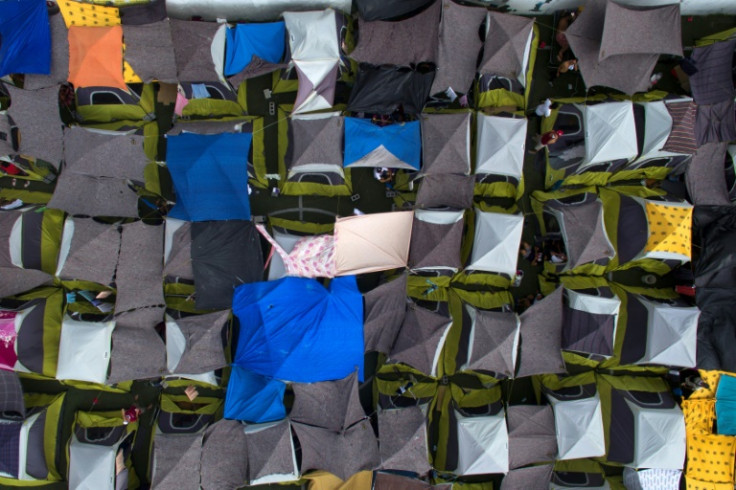
Border arrests have dropped about 30% month-over-month since the Biden administration's ban on asylum seeking, leading to the lowest figure since September 2020 and raising the chances that the ban could be lifted altogether. And the effects of the measure are now being reflected in another area: migrant shelters.
Shelters along the U.S. southern border and in major cities are reporting significant declines in the number of migrants seeking refuge, with some experiencing drops as high as 60% in recent months, NBC News reports.
In Texas, which saw one of the busiest migrant crossings a year ago, shelters are now seeing far fewer migrants. For example, in Del Rio, the Val Verde Humanitarian Border Coalition reported a significant reduction in migrants needing shelter, with representatives labeling the flow of migrants needing shelter now "drastically, drastically less."
Similarly, the Rescue Mission of El Paso had about 80 to 90 people using beds this week, down from around 200 during the same week last year.
The piece by NBC News also reports that the reduction is not limited to border cities. Tucson, Arizona, for example, has seen a 60% drop in shelter residents since Biden's order and in Chicago the migrant population has decreased from over 13,000 in February to 5,594 in August.
Shelters on the Mexican side of the border are also reporting fewer migrants. In Nogales, Mexico, the number of U.S.-bound migrants has dropped by 80% compared to last year and Matamoros migration camps also report steep declines.
The Biden administration's CBP One app, which allows migrants to apply for asylum without entering the U.S., has also contributed to the decline. According to U.S. Customs and Border Protection, approximately 188,500 migrants have used the app to schedule appointments at U.S. ports of entry since January 2023.
This week's announcement that the U.S. is expanding the geographical location from which migrants can legally apply through the app is also bound to reduce transit flows. Migrants can now apply for an appointment with authorities from the Mexican states of Chiapas and Tabasco.
© 2024 Latin Times. All rights reserved. Do not reproduce without permission.







